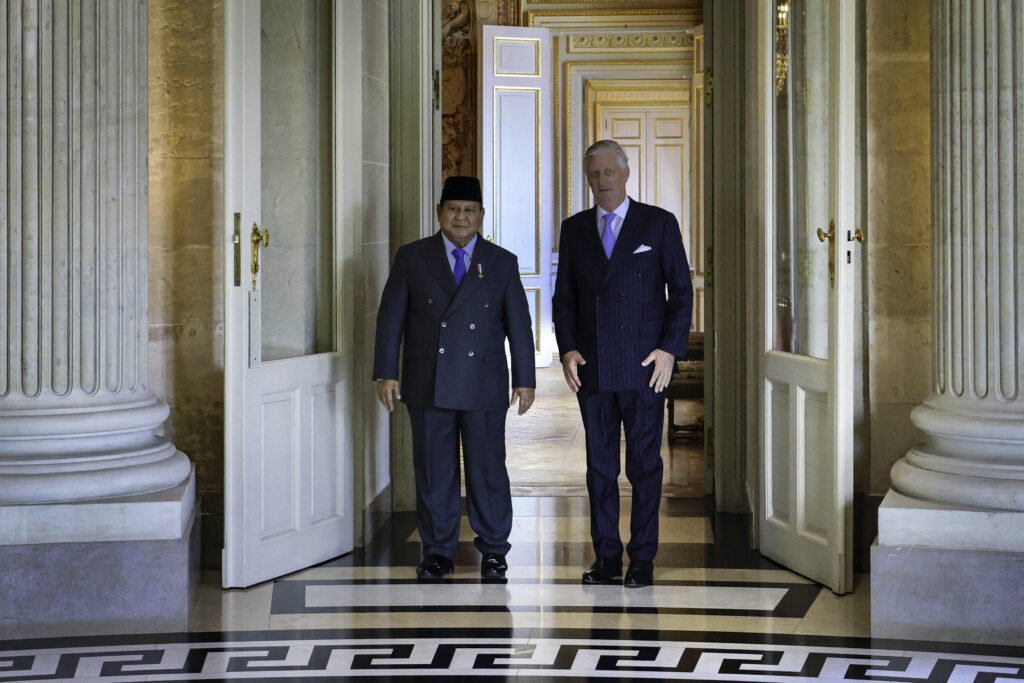Sri Mulyani: 2020 Fiscal Policies Designed to Meet Economic Development Targets

Finance Minister Sri Mulyani delivers the Government’s proposal for the 2020 State Budget Bill, at the DPR RI Plenary Meeting in Jakarta, Monday (20/5). (Photo by: Ministry of Finance PR)
Principles in implementing fiscal policies for 2020 Fiscal Year are designed to meet short, medium and long-term economic development targets, according to Minister of Finance Sri Mulyani Indrawati.
Sri Mulyani made the statement during a Plenary Meeting with lawmakers on Monday (20/5) to deliver an introduction and government statement on macro economic framework and principles of fiscal policy (KEM-PPKF) for 2020 Fiscal Year as a preliminary discussion to formulate the 2020 State Budget Bill.
The Minister also revealed the amount of macroeconomic framework, as follows: a. economic growth of 5.3-5.6%; b. inflation rate of 2.0-4.0%; c. interest rate of three-month treasury bills (SPN) of 5.0-5.6%; d. Rupiahs exchange rate against US dollar of Rp14,000-15,000; e. Indonesian crude oil prices at US$60-70 per barrel; f. Petroleum lifting of 695-840 thousand barrels of oil per day (bopd); and g. natural gas lifting of 1,191-1,300 thousand barrels of oil equivalent per day.
Regarding fiscal macro strategies to be adopted by the Government for expansionary fiscal policy, the Minister has unveiled three strategies, among others revenue mobilization for widening fiscal space; better expenditure policies for efficiency; and increase in capital expenditure to form assets and develop creative payments and risk mitigation to control liabilities.
Fiscal policy is also designed to improve the governments balance sheets, marked by increased assets, controlled liabilities, and increased equity, said Sri.
As for state revenue, the Government continues to increase tax ratio through tax reforms to increase it into 11.8-12.4% of gross domestic product (GDP) in 2020.
In addition, state revenues will be boosted through reform of management of non-tax state revenues (PNBP) by optimizing management of assets and natural resources, maintaining quality of public services, improving management of state assets, including insuring them against natural disasters. The Government estimates that the PNBP in 2020 can make up 2.0-2.5% of the GDP.
Meanwhile, state expenditure in 2020 is estimated to reach 14.4-15.4% of GDP and to that end, the Government encourages higher quality spending through massive savings in spending on goods, strengthened capital expenditure, personnel spending reform, increased effectiveness including accuracy of target of spending on social assistance and subsidies, as well as more transfer spending to the regions and Village Funds.
To date, more than a third of state expenditure is allocated to Transfer to Regional and Village Funds (TKDD) expenditure. The increased quality of fiscal decentralization is expected to drive economies in the regions.
As a consequence of expansionary fiscal policy, state budget posture is proposed to experience a measurable deficit and to safeguard funding sources in a safely, careful and sustainable manner. Debt deficit and ratio will remain in control within safe limits while encouraging a positive primary balance.
The Government is committed to encouraging private sectors role in financing development through a cooperation framework between the Government and business entities (PPP), including encouraging the issuance of other creative financing instruments, Sri said, adding that as the opening year for new government period, deficit policy in 2020 will be at 1.75-1.52% of the GDP, a positive primary balance, and a debt ratio of around 30% of the GDP. (Ministry of Finance PR/ES)
Translated by: Muhardi
Edited by: M. Ersan Pamungkas








